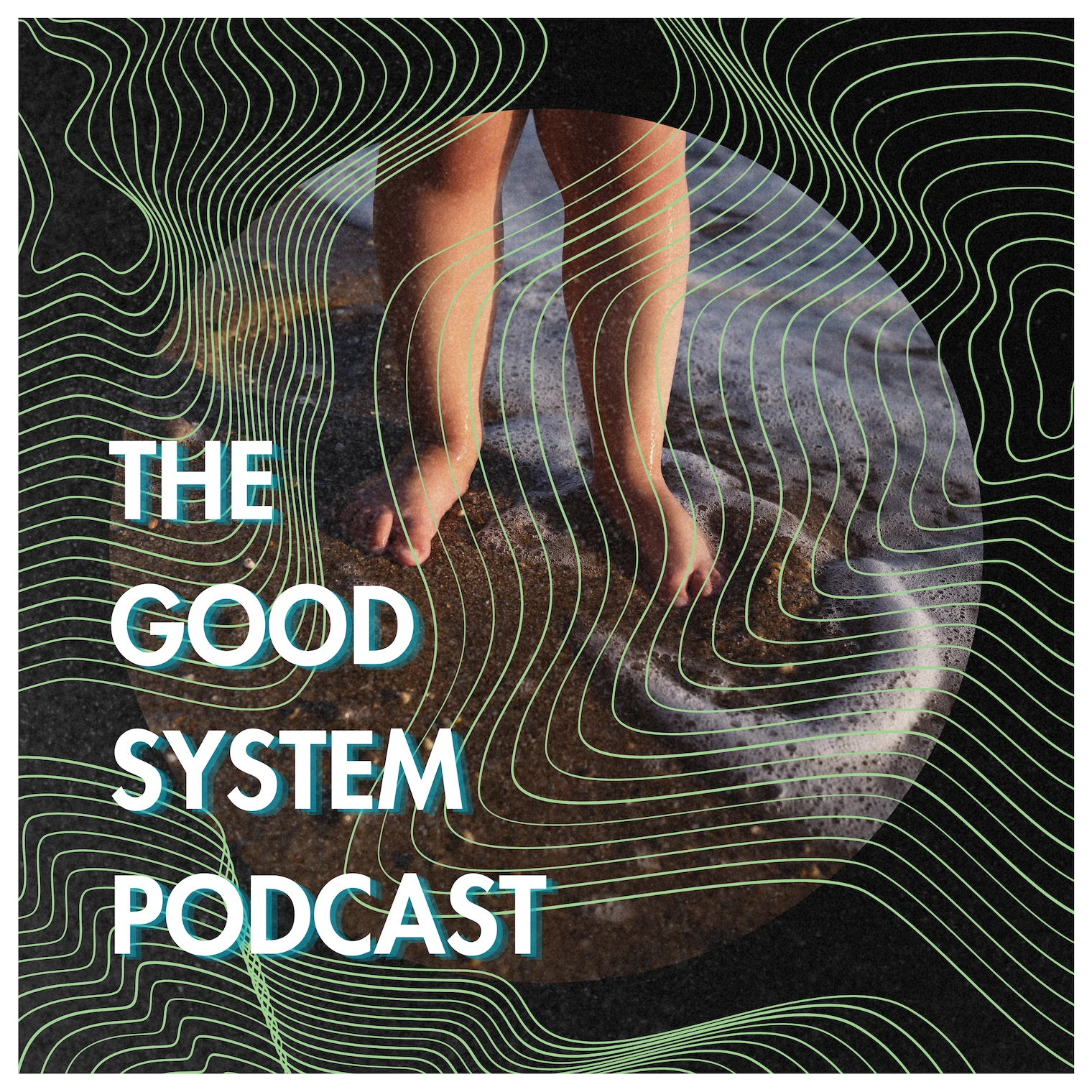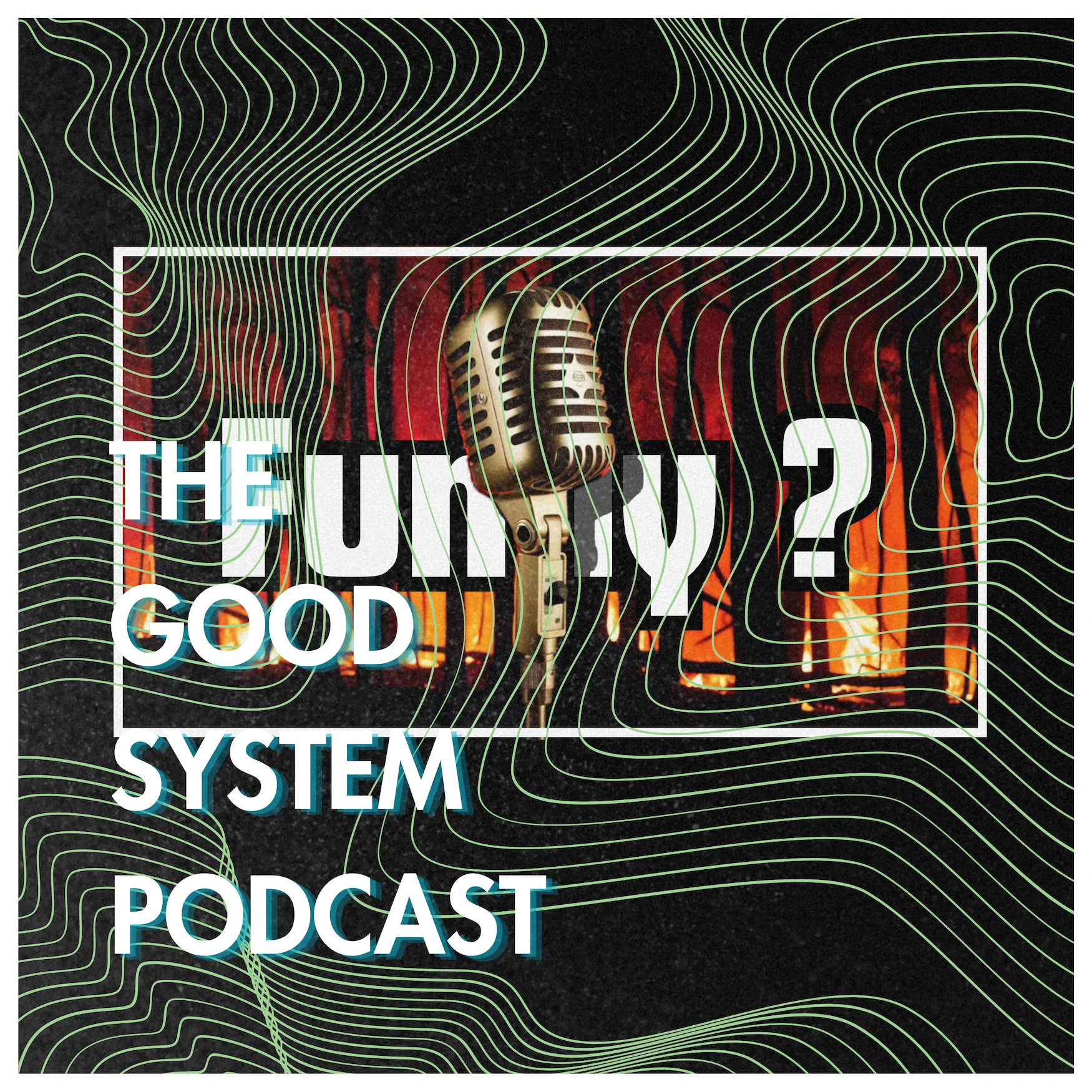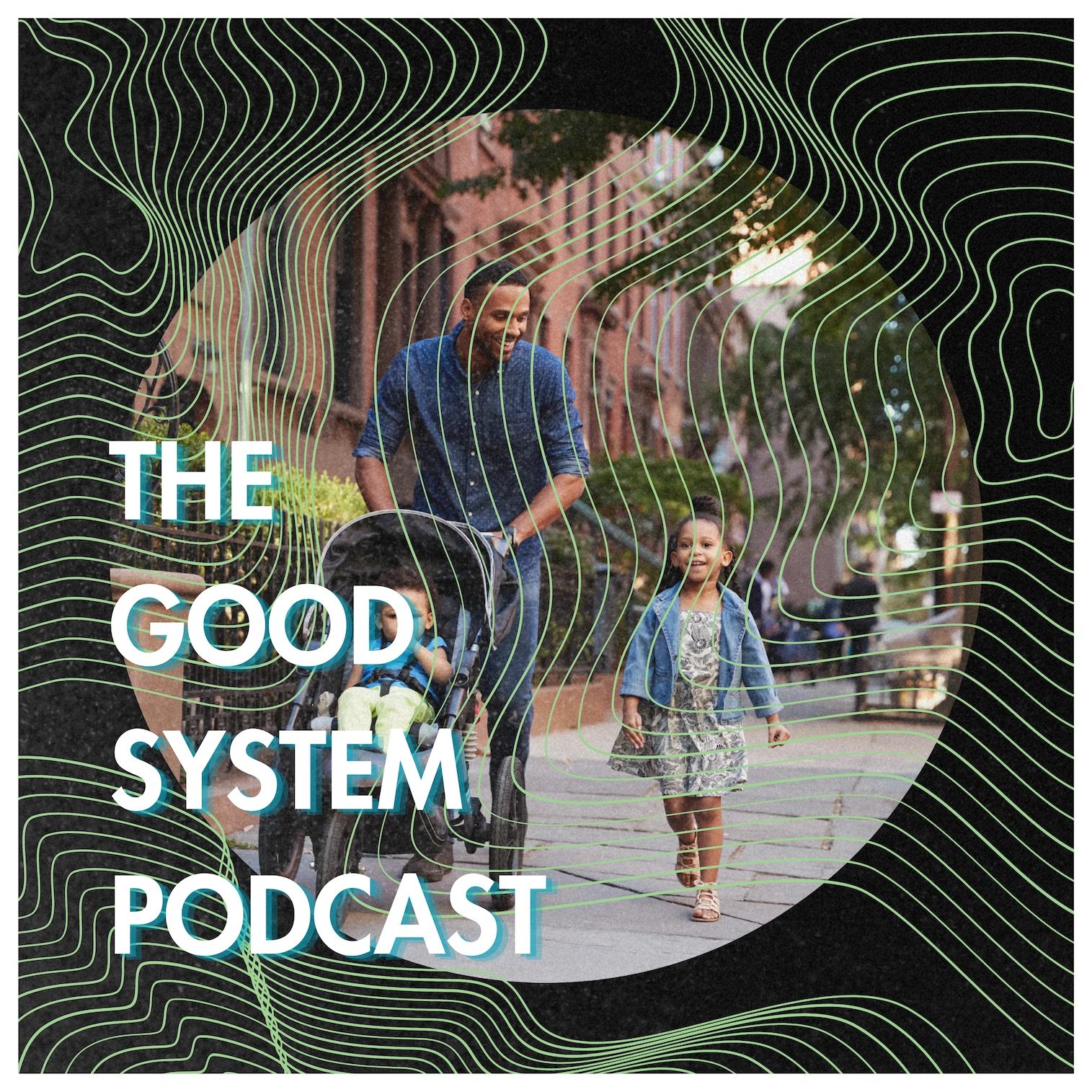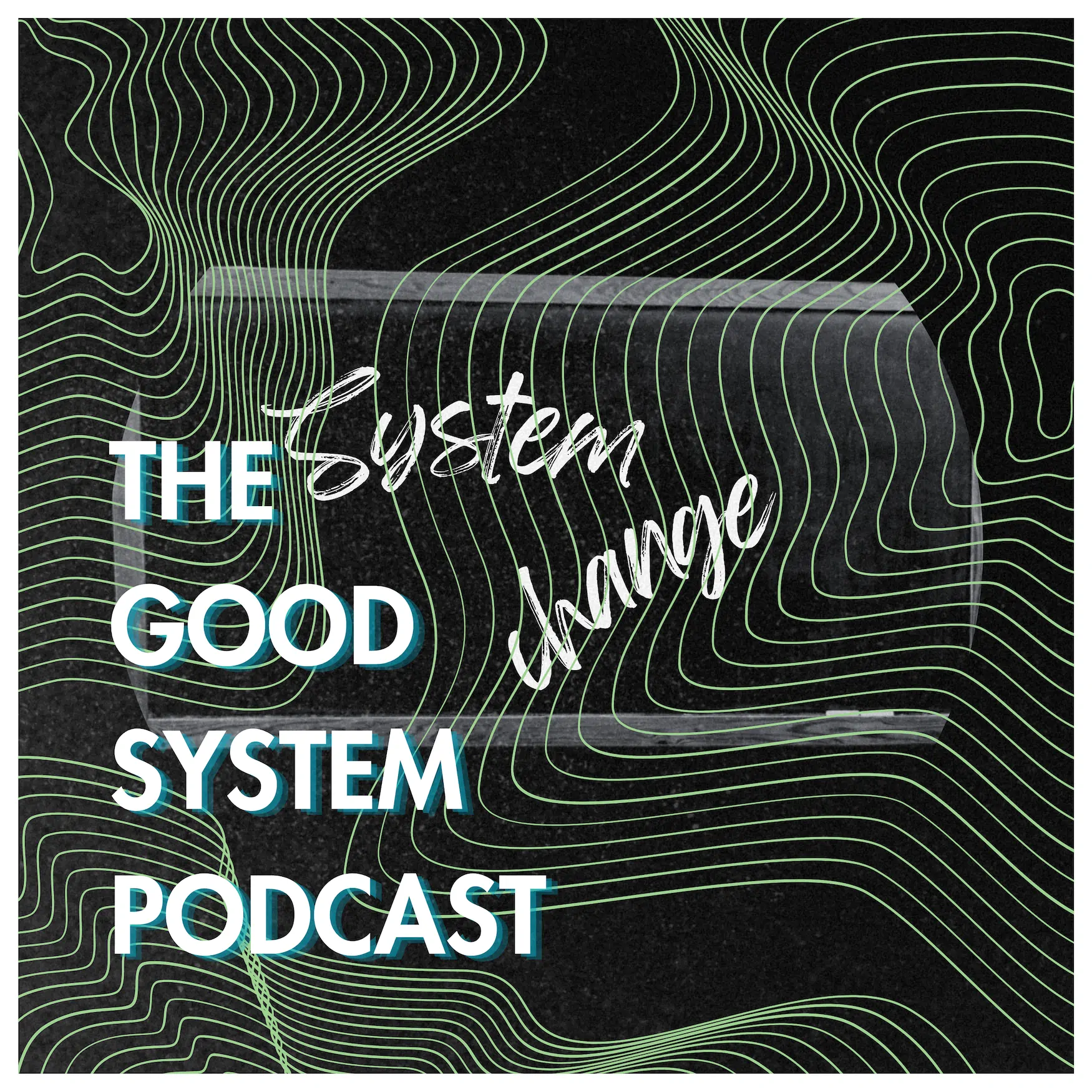[00:00:00] So you've sold your car swan of air travel, switched to cold showers and you've subsisting on local grown kale that you personally whispered encouragement to while it was growing. Your entire wardrobe is made from recycled banana peel instead of toilet paper. You use a reusable bottom shower and you've calculated the carbon footprint of every every breath you take.
[00:00:29] Congratulations on your perfectly sustainable lifestyle. Too bad it's completely pointless. The climate is still changing.
[00:00:41] Welcome to the good system. I am Ian the Bay and today we're talking about why your individual carbon footprint is the greatest misdirection in environmental history.
[00:00:56] So let me paint you a picture.
[00:01:00] It's 7am on a Tuesday.
[00:01:03] You wake up in your perfectly insulated apartment. The temperature is a comfortable 19 degrees Celsius. Not too hot, not too cold, just environmentally responsible.
[00:01:20] You shuffle to the kitchen in your ethically made ham slippers, open your energy efficient refrigerator and pull out some locally sourced seasonal fruits for your breakfast.
[00:01:36] Then you brew your fair trade shade grown coffee in a French press because heaven forbid you use those terrible coffee pots that will outlive your grandchildren's grandchildren.
[00:01:53] You sip from your reusable bamboo mug while scrolling through Instagram looking at all the climate protests you should probably attend.
[00:02:04] But you are too busy calculating the carbon footprint of your upcoming weekend trip to your parents house.
[00:02:14] Sound familiar?
[00:02:16] No, just me.
[00:02:18] Well, I've been there. I've been that person.
[00:02:22] The one counting every gram of CO2 I'm responsible for.
[00:02:27] The one feeling guilty for taking a hot shower that lasted more than four minutes. The one lecturing friends about their plastic straw use while conveniently ignoring the private jets flying overhead.
[00:02:45] And look, I get it.
[00:02:47] We all want to do our part.
[00:02:50] But today I want to talk about why focusing on your individual carbon footprint is actually a step in the wrong direction.
[00:03:02] And why despite all our personal sacrifices, the climate is still changing at a terrifying pace. So some years ago, I started to avoid plastic. Wherever I could.
[00:03:17] I wanted to get rid of it. Room for room. And the first room was the bathroom.
[00:03:24] On one hand, because there's a ridiculous amount of plastic in any cosmetic product, as an ingredient and as packaging. And second, because I am a man and don't need much stuff.
[00:03:41] First, I got rid of shampoo, shower gel, shower shower gel, shower gel and liquid soap.
[00:03:51] And now I stink.
[00:03:53] No, I hope not.
[00:03:55] But it turns out that all of these cosmetics are mostly water packed in plastic.
[00:04:05] The transportation of these kind of bathing essentials produces far more emissions per gram than the good old soap bar and the Only oil the bars have in them is from plants. I mean living plants, not plants that died millions of years ago.
[00:04:25] And you can use the bar for hand washing, showering and hair washing. And also it's cheaper too.
[00:04:34] The other thing I need in the bathroom is a shaver because I am a hairy guy, really manly.
[00:04:42] And as was the case with the soap, the step back here was also a step in the right direction.
[00:04:50] I bought a good oil safety shaver. It is fully metal and uses standardized blades.
[00:04:57] Again, it isn't only better for the environment, it is also so much cheaper.
[00:05:05] Capitalists hate this trick.
[00:05:08] And okay, I cut myself more often on places I never have thought you can cut yourself, but it is worth it.
[00:05:18] Because the proprietary. The proprietary. The.
[00:05:26] Because the proprietary razors. Okay, I got it.
[00:05:31] Because the proprietary razors made of plastic are a scam only surpassed by printers. The blades are so expensive and only fit one specific model. So if you buy a new model, you can't use the same blades anymore.
[00:05:49] And of course they change the system from time to time slightly. So you have to buy a new model and can throw away all the blades you already have bought.
[00:06:04] But back how I tried to get rid of plastic in the bathroom. I am also in the progress of switching to plastic free towels, but because throwing away good towels would be a sustainable sacrileg, I wait till the plastic contaminated towels break, but they seem to live forever.
[00:06:27] For deodorant I used cream for some time because it's the same thing as with the soap.
[00:06:34] Normal liquid deodorant is mostly water and it makes no sense shipping water around.
[00:06:42] But I ended up using a classic roll on again, but this time in a glass bottle.
[00:06:50] So it still has plastic is mostly water and since glass is heavier than plastics, its transport even emits more so a complete fail.
[00:07:04] Because also the whole deodorant industry is a big dirty scam.
[00:07:10] For my German speaking listeners, I put a link to a podcast into the show. Notes about the history of the Dior deodorant and how they scammed mostly women into believing that they need a deodorant.
[00:07:28] So. And finally to come to an end of this segment about my bathroom, finally I tried bamboo toothbrushes and even used one made from the miswack bush or the toothbrush tree as it is called.
[00:07:50] The manufacturer claims that you do not need a toothpaste because of the ingredients of the plant that is used by indigenous people.
[00:08:00] But it wasn't for me. And also my dentist discouraged me from using it. And so I am back to plastic toothbrush and plastic toothpaste, also a fail. But I tried some time to replace the toothpaste with tooth pills, but these are just overpriced hipster stuff. Although they may be better for the environment, but they are just too expensive.
[00:08:32] So the only sustainable dental hygiene tool I still use is plastic free floss. And it's okay.
[00:08:40] It works. It's not the best, but it works. To do all this, to try everything out, took years. And so now I changed to the strategy to slowly fade out all the plastic things when they need to be renewed.
[00:08:57] But as I mentioned, they are durable, only losing one tiny micro particle at a time. But you know what?
[00:09:07] Despite all this, to get rid of all the plastic, live more sustainable, and reduce my personal carbon footprint, the climate kept changing, the news kept reporting record temperatures, the ice caps kept melting, and I kept wondering, what am I doing wrong?
[00:09:30] The answer, my friends, is nothing and everything.
[00:09:36] Because here is the your individual carbon footprint doesn't actually matter.
[00:09:43] At least not in the way we've been led to believe.
[00:09:48] You know where the concept of a personal carbon footprint came from?
[00:09:54] Bp?
[00:09:56] Yes, British Petroleum, one of the largest oil companies in the world.
[00:10:03] In the early 2000s, they launched a carbon calculator to help people measure their personal impact on the environment.
[00:10:14] How thoughtful of them. Right?
[00:10:17] Except it wasn't thoughtful. It was strategic. It was brilliant marketing that shifted the responsibility from corporations to individuals.
[00:10:30] It's like if a cigarette company created a lung cancer awareness campaign that focused exclusively on how you shouldn't stand near smokers rather than, you know, not producing cigarettes.
[00:10:46] The move was genius for three reasons.
[00:10:50] One, it freed the industry from guilt.
[00:10:54] Hey, we're just supplying what consumers demand.
[00:10:58] Look at your own lifestyle before pointing fingers at us.
[00:11:05] But that's what I imagine they talk like.
[00:11:10] The second reason is it created an opportunity to sell products at higher prices when they're labeled as sustainable. That's green capitalism at its finest, folks.
[00:11:26] And three, and this is the masterstroke, it distracted people from addressing the real problem.
[00:11:34] While we are all arguing about whether almond milk or old milk uses less water, the fossil fuel industry continues to extract, burn and profit.
[00:11:47] Drill, baby, drill.
[00:11:51] Let me tell you a story about my friend Max.
[00:11:53] Max is the most environmentally conscious person I know.
[00:11:58] He lives in a tiny house powered entirely by solar panels.
[00:12:03] He grows his own food. He hasn't bought new clothes in five years.
[00:12:10] He composts his own waste.
[00:12:13] Yes, all of his waste.
[00:12:17] Don't ask for details.
[00:12:19] One day, Max calculated that his annual carbon footprint was about 2 tons of CO2.
[00:12:29] The average American's is about 16 tons.
[00:12:33] He was feeling pretty smug about it until we discovered that a single transatlantic flight produces about 1.6 tons of CO2 per passenger.
[00:12:50] So basically, Max entire year of extreme eco living could be undone by one person taking one long flight.
[00:13:03] And there are thousands of flights every day.
[00:13:10] When Max realized this, he had what I can only describe as an existential crisis.
[00:13:17] I found him sitting in his compost pile, staring blankly into the distance, mumbling something about systems and structures.
[00:13:29] And he was right.
[00:13:31] And he is totally made up. Of course, who lives like this?
[00:13:39] But what is real? We live in a system built on fossil fuels. They are not just in our cars and planes, they are everywhere. In our clothes, our food, our cosmetics, our packaging.
[00:13:54] Oil quite literally permeates every aspect of our lives.
[00:14:00] And since only a few countries and companies control this resource, the dependency is incredibly high.
[00:14:08] These entities have no interest in renewable energy, not just because it threatens the business model, but because sun and wind are available nearly everywhere for free.
[00:14:23] And if there's one thing capitalists hate, it's things that are free and make you free and not dependent on them.
[00:14:35] I mean, can you imagine a world where energy comes from the sun and wind rather than being extracted from the ground at enormous environmental and human cost?
[00:14:49] Blasphemy.
[00:14:52] So now let's talk about food for a minute.
[00:14:57] I was a vegetarian for a long time.
[00:15:01] Now. Right now I try to be mostly vegan, but I am still in a flexitarian phase because of my high blood pressure. Eating mostly vegetables is the way to go.
[00:15:16] But since I might have a histamine intolerance, it gets more complicated.
[00:15:22] While there are health benefits to plant based diets, and yes, they generally have a lower carbon footprint, it's not as straightforward as we might think.
[00:15:36] For instance, if you drive for 45 minutes to a specialty store to buy organic locally grown vegetables, the carbon emissions from your car trip probably negated any benefit from buying local.
[00:15:53] You could have walked to the supermarket around the corner and bought imported vegetables with a lower overall footprint.
[00:16:02] It could be different if you, instead of the car, used your bike and cycled for three hours to the store outside the city.
[00:16:12] And let's be honest about the avocado toast you're probably eating while listening to this podcast.
[00:16:19] The problem isn't that it traveled around the world to reach you. Transportation actually accounts for a relatively small percentage of food's carbon footprint. The issue is the extreme water usage of avocado plantations, often in water stressed regions.
[00:16:39] So while you are feeling virtuous about your plant based breakfast. Entire communities are facing water shortages.
[00:16:47] So you can have that creamy green spread on your sawdough which I can't have because of my histamine intolerance.
[00:16:56] This is not to make you feel bad about your avocado toast. Eat it, enjoy it. I am not at all jealous of your intestinal flora.
[00:17:07] Just understand that your individual dietary choices, while important for many reasons, aren't going to solve climate change.
[00:17:18] And let's talk about construction industry for a minute.
[00:17:24] I recently thought why not make the bathroom a temple of sustainability and renovate it using only sustainable materials? What an adventure that was. I spent weeks researching eco friendly options. Bamboo flooring, recycled glass countertops, VOC free paint, paint.
[00:17:45] I was determined to have the greenest bathroom in the neighborhood.
[00:17:51] Then I got the quotes.
[00:17:53] Turns out being sustainable costs about three times as much as conventional materials.
[00:17:59] And when I asked about the carbon footprint of manufacturing and shipping these eco friendly alternatives, most suppliers couldn't even tell me.
[00:18:09] And meanwhile, concrete, which is responsible for about 8% of global CO2 emissions, continues to be a port at staggering rates for new highways, parking lots and strip malls. And my bathroom renovation dilemma suddenly seemed rather insignificant. And so I thought, doing nothing at all is even more sustainable and even cheaper.
[00:18:37] The construction industry, like many others, is controlled by what I affectionately call the old white man club.
[00:18:48] These are the guys who've been doing things the same way for decades. They know their materials, their methods, their margins, and asking them to change is like asking a cat to take a bath.
[00:19:04] It's technically possible, but expect a lot of resistance and some blood loss.
[00:19:12] This industry, fossil fuels, meat production, construction and beside others, are the real drivers of climate change.
[00:19:20] And they are deeply embedded in our economic and political system.
[00:19:26] One could even say they own it.
[00:19:30] When I visit my parents who live in a town near a big city, I can go there by bus, but I have to leave in the early afternoon or I won't make it home.
[00:19:44] There live more than 6,500 people, many of them who can't drive a car and all they have is a bus that comes infrequently for decades now there is a plan to be build a light rail line there, but since the state they live in is governed by two far right parties, they won't do it.
[00:20:07] All they do is to build more roads and highways to raise the car dependency.
[00:20:14] I wonder who profits from that.
[00:20:18] But people want and need better public transportation, but the political and economic system won't give it to them.
[00:20:28] And this is the absurdity we're dealing with.
[00:20:31] We're told to take shorter showers while industry uses billions of gallons of water.
[00:20:38] We're told to recycle while corporations continue to produce single use plastics.
[00:20:45] And we're told to turn off lights while industrial facilities keep their skylines illuminated all night.
[00:20:54] It's like trying to empty the ocean with a teaspoon while someone else is using a fire hose to fill it up.
[00:21:02] I guess both of this makes no sense when talking about an ocean, but you get it.
[00:21:10] Do you? Do you get it?
[00:21:13] Write me in the comments if you listen anywhere where there are comments. But let's go on.
[00:21:22] Where were we?
[00:21:26] Yeah, Living sustainable Don't get me wrong, there's nothing inherently bad about living sustainably. Being vegan can be healthier is healthier most of the time. And walking or cycling instead of driving is good for your body and for the local air quality.
[00:21:47] And using less energy saves you money.
[00:21:52] But don't fool yourself into thinking that your reusable water bottle is going to stop climate change. It won't. Not as long as the system remains unchanged.
[00:22:05] So what do we do? Give up?
[00:22:08] Go back to gas? Gasoline, SUVs and daily stakes?
[00:22:13] Or do we start our own oil company?
[00:22:17] No, of course not. But we need to redirect our focus.
[00:22:23] First, continue living sustainable if it makes you happy and aligns with your values, just don't let it distract you from the bigger picture.
[00:22:35] Second, be wary of expensive sustainable products.
[00:22:40] The best thing for the environment is usually to use what you already have until it can't be used anymore.
[00:22:49] Don't follow every trend, buy second hand or refurbed, and best wear your clothes as long as possible.
[00:23:00] Third, and most importantly, get political vote, engage in local politics, join community groups, support policy changes that regulate industries and transform infrastructure.
[00:23:15] Because here's the truth.
[00:23:18] While one person changing their lifestyle barely registers on the global carbon scale, millions of people demanding systemic change can move mountains like climate change moves the glaciers.
[00:23:36] But we won't convince people if living sustainably means being miserable. We only have one life we have to enjoy is actually possible to live a sustainable life and enjoy it even in an unsustainable system like ours.
[00:23:58] The fossil fuel industry wants you to believe that climate change is your fault, that if only you recycled more, drove less, ate differentially, everything would be fine.
[00:24:12] They want you calculating your carbon footprint instead of questioning why their carbon footprint is allowed to be astronomically large.
[00:24:25] It's like being in a boat with a massive hole in it.
[00:24:30] The captain is standing there With a drill actively making the hole bigger, while telling all the passengers that if they just scoop water a little faster, everything would be fine.
[00:24:44] What does meaningful action look like?
[00:24:48] It looks like demanding renewable energy infrastructure.
[00:24:52] It looks like supporting public transportation and urban planning that reduces car dependency.
[00:25:00] It looks like regulating industries and holding them accountable for their emissions.
[00:25:07] It looks like collective action rather than individual sacrifice.
[00:25:14] Stop feeling guilty about every aspect of your lifestyle.
[00:25:20] Your occasional meat consumption, Amazon deliveries, the fact that you sometimes forget your reusable grocery bags.
[00:25:30] As long as you vote for the parties with the most climate friendly policies, you are aware of how unsustainable our system is, and you try step by step in your own imperfect way to make your lifestyle carbon free.
[00:25:48] It's all good.
[00:25:50] That's not to say individual actions don't matter at all.
[00:25:55] They do, just not in the way we've been led to believe.
[00:26:00] Your sustainable lifestyle choices matter because they help normalize sustainable behaviors and they create demand for better products and services.
[00:26:12] And they demonstrate commitment to your values.
[00:26:16] But most importantly, they can be the gateway to bigger, more systemic forms of engagement.
[00:26:26] Lecturing and judging everyone about their unsustainable choices, like I did. And okay, I confess, I sometimes still do, won't make people rethink the system.
[00:26:40] It will make them hate the messenger, which is us.
[00:26:46] And it will make us lonely.
[00:26:51] Over time, I realized something important.
[00:26:55] Shame doesn't inspire change.
[00:26:58] It paralyzes, it alienates. It divides at a time when we need unity more than ever.
[00:27:10] Now, instead of shaming people for their choices, I try to engage them in conversations about the systems that limit our choices in the first place.
[00:27:22] Why is flying often cheaper than taking the train? Why are sustainable products usually more expensive? And why do we subsidize fossil fuels but not renewable energy at the same scale?
[00:27:39] And I know engaging in conversations with others can be difficult, especially if you are an introvert.
[00:27:48] But it's something we have to do and most of the time it is not as scary as it seems at the beginning.
[00:28:00] And for God's sake, I, as an introvert, try to build a whole career talking about this. And if I can do this, you can do this much better.
[00:28:14] And all the questions I told you before lead to meaningful change.
[00:28:22] And these are the conversations that build movements rather than reinforce the individual guilt.
[00:28:33] So here's my advice for navigating the complex world of sustainability without losing your mind.
[00:28:44] Live according to your values, but don't expect your individual choices to solve systemic problems.
[00:28:53] Don't stress about perfection. The perfect environmentalist doesn't exist.
[00:29:00] And striving for personal purity just leads to burnout.
[00:29:07] Save your energy for collective action.
[00:29:10] Join groups, engage politically and support policy changes.
[00:29:16] And perhaps most importantly, find joy in the process.
[00:29:20] Sustainability shouldn't feel like punishment.
[00:29:24] It should feel like creating a better world.
[00:29:29] One that works not for just the privileged who can afford expensive eco products, but for everyone.
[00:29:38] And this is what we're working for, for this better world.
[00:29:42] Because ultimately, that's what this is all about.
[00:29:46] It's not about just reducing our carbon emissions, but it's about creating a more just, equitable and livable world for all of us.
[00:29:59] The individual carbon footprint concept wants us to believe that climate change is a personal, moral failing rather than than a systemic issue. It wants us divided, comparing our relative virtues, arguing about who is doing more or less.
[00:30:20] But the climate doesn't care about our good intentions or our moral purity.
[00:30:27] It responds to physics, to actual reductions in greenhouse gas emissions at scale.
[00:30:35] And achieving that requires changing the system, not just our shopping habits.
[00:30:42] And so yes, buy the bamboo toothbrush if it makes you happy, ride your bike when the weather's nice and even if it rains.
[00:30:52] Enjoy your plant based meals.
[00:30:54] They're good for you. But don't stop there.
[00:30:59] Join the movement for systemic change, because that's where the real power lies.
[00:31:07] Remember, your individual carbon footprint is a concept created by bp.
[00:31:16] The system needs to change, not just you.
[00:31:22] This has been the Good System podcast.
[00:31:28] I am Ian Debay. Thank you for listening and remember individualism and come together.
[00:31:37] If you enjoyed this episode then please consider subscribing or leaving a review or comment where it's possible and share it with friends.
[00:31:47] Send it to one friend. That's your home exercise for this week. Share it to one friend or listen together with a friend and then maybe you can join a movement together.
[00:32:01] This episode is based on a blog article I wrote. You can find it, the article and additional resources on sustainability and system
[email protected] you can also listen to this podcast on YouTube and Spotify.
[00:32:24] And on YouTube I have three channels now and if you want to check all of them, the links are in the Show Notes.
[00:32:36] I also have a newsletter or I plan to have a weekly newsletter if I already started it. You find the link also in the Show Notes.
[00:32:49] So that's it for this week.
[00:32:52] Stay sustainable, question everything and change the system.
[00:32:57] Thank you for listening. I'm Ian the Bay.





